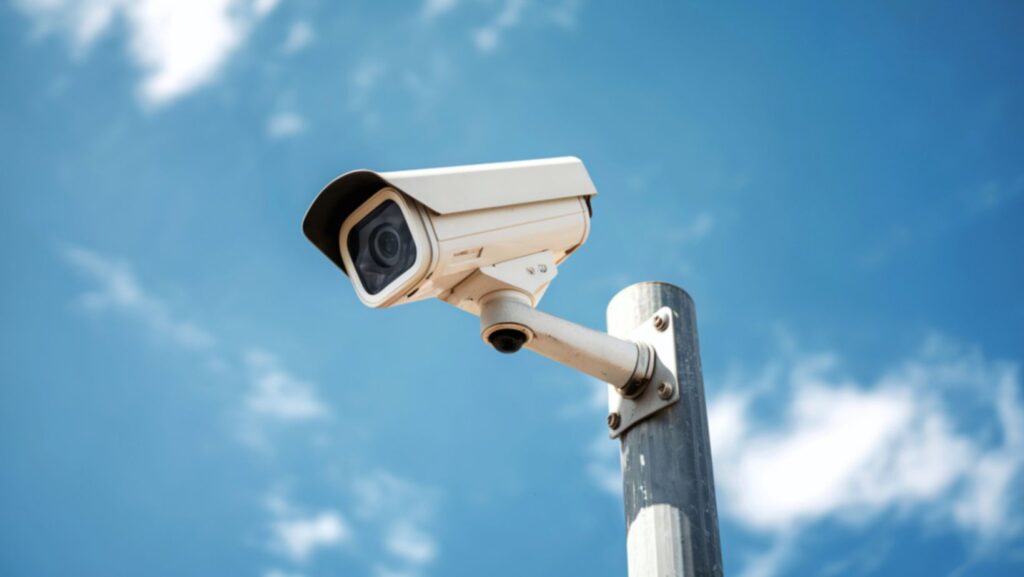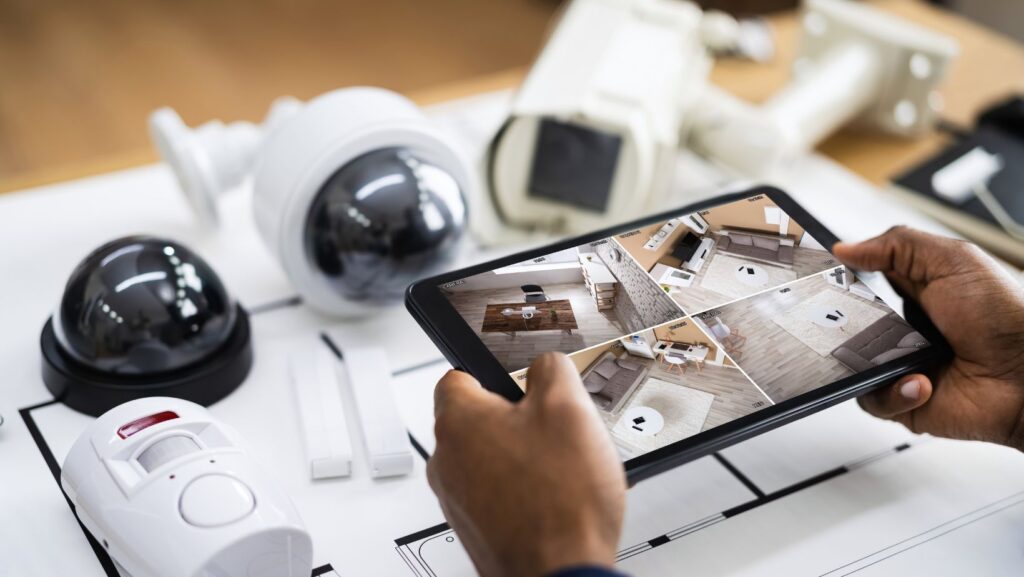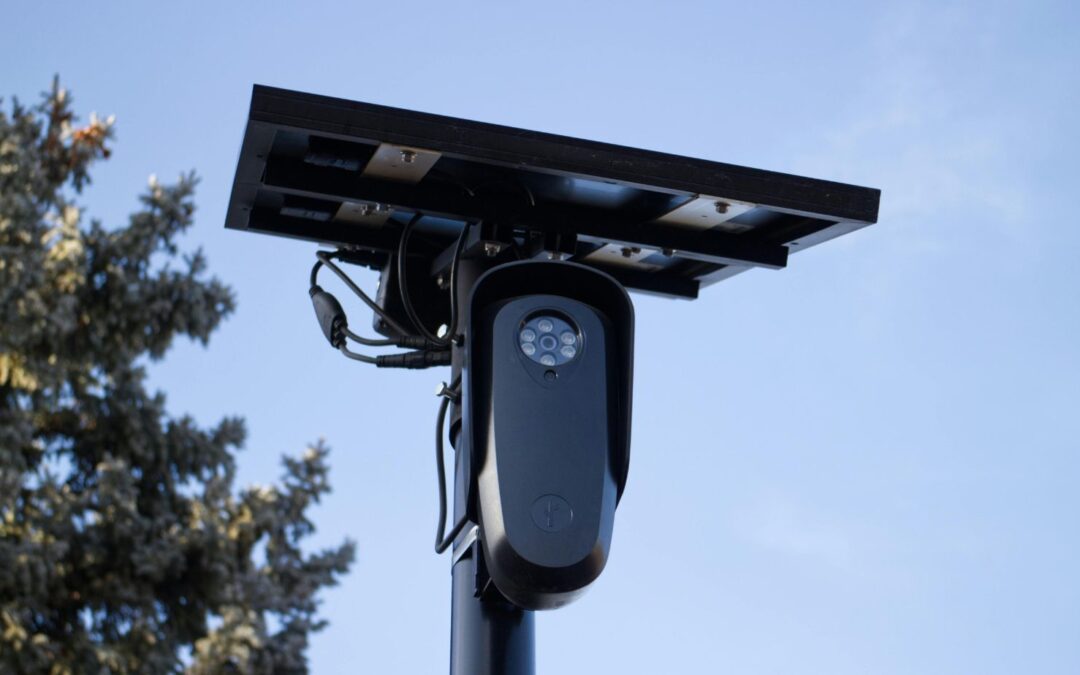A reliable security camera system is one of the smartest investments you can make for your home or business. With the right setup, you can keep an eye on your property, protect valuable assets, and enjoy greater peace of mind, whether you’re on-site or away.
As technology advances, one question often comes up: Are solar security cameras better than wired systems?
At Frontline Security, we’ve seen both systems in action across homes, construction sites, and commercial properties throughout New Zealand. Each option has its advantages, and the best choice depends on your needs, environment, and how you want to manage your security system.
Let’s take a closer look at how solar security cameras compare to traditional wired systems and which one might be the better fit for you.
What Are Solar Security Cameras?
Solar security cameras are wireless surveillance systems powered by solar panels. They draw energy from sunlight, store it in rechargeable batteries, and use it to power the camera and its components. Most models also connect via Wi-Fi or 4G networks, allowing users to monitor their property remotely through an app or web dashboard.
These systems are becoming increasingly popular in New Zealand, especially in rural or outdoor locations where access to mains power or wired internet is limited.
What Are Wired Security Camera Systems?
Wired systems, on the other hand, are the more traditional option. They’re powered by your property’s electrical supply and transmit video data through physical cables to a recorder (such as a DVR or NVR).
Because of their direct connections, wired home security systems tend to offer stable, high-quality footage and uninterrupted power, making them a dependable choice for many businesses and residential properties.

Pros of Solar Security Cameras
Solar-powered systems have come a long way in recent years. Here are some of their biggest advantages:
1. Easy installation
Since they don’t require electrical wiring or a power outlet, solar security cameras can be installed almost anywhere. This makes them perfect for remote or hard-to-reach areas like construction sites, rural properties, farms, or large outdoor perimeters.
2. Environmentally friendly
Solar cameras harness renewable energy, reducing your electricity usage and carbon footprint. For environmentally conscious homeowners or businesses, they’re a sustainable choice that aligns with green values.
3. Cost-effective in the long term
While the upfront cost can be higher, you’ll save on installation fees and ongoing power costs. Solar-powered systems also operate independently, meaning you won’t need to rely on professional electricians to set them up or maintain them frequently.
4. Reliable during power cuts
New Zealand’s weather can be unpredictable, and power outages happen. With solar security cameras, your surveillance system stays operational as long as the batteries are charged, keeping your property protected 24/7, even when the grid goes down.
5. Remote monitoring
Most solar cameras connect to apps or online dashboards, allowing you to monitor your property from anywhere. You can check live feeds, receive alerts, and even speak through two-way audio in real time.
Cons of Solar Security Cameras
Despite their benefits, solar security cameras aren’t perfect for every situation.
1. Weather dependency
Although modern systems are designed to work efficiently even in cloudy conditions, they still rely on sunlight. In areas with limited sun exposure or during winter months, the batteries may not always stay fully charged.
2. Limited recording capabilities
Many solar-powered cameras record on motion detection rather than continuously to save battery life. While this is energy-efficient, it may not capture every moment, especially in high-activity areas.
3. Connectivity issues
Because they’re often wireless, these cameras depend on a stable Wi-Fi or mobile network. In rural or remote areas, network dropouts can occasionally affect real-time monitoring.

Pros of Wired Security Camera Systems
1. Continuous power and recording
Wired systems have the advantage of uninterrupted power and data transmission, making them ideal for locations that require 24/7 recording, like retail stores, offices, or industrial sites.
2. High-quality video
Since the footage is transmitted through cables rather than over Wi-Fi, you can expect crisp, consistent video without compression or interference.
3. More secure connection
With no wireless signals to intercept, wired systems are less vulnerable to hacking or interference, which can be a major advantage for commercial or high-security properties.
4. Ideal for larger networks
If you need multiple cameras covering different zones, wired setups are generally more scalable and stable than wireless or solar-powered systems.
Cons of Wired Security Camera Systems
1. Complex installation
Installing a wired system can be time-consuming and may require professional help, especially if you’re fitting multiple cameras across a large site.
2. Higher upfront cost
While the cameras themselves can be affordable, labour and cabling expenses can add up.
3. Power outage vulnerability
Unlike solar-powered cameras, wired systems rely entirely on your power supply. Unless you have a backup generator or UPS, your surveillance may stop working during an outage.

Which Option Is Best for You?
The choice between solar security cameras and wired systems comes down to your environment, budget, and security goals.
Solar security cameras are ideal if:
- You’re protecting a remote or outdoor site without easy access to power.
- You prefer a flexible, easy-to-install setup. You value sustainability and energy efficiency.
- You want a backup system that keeps recording during power outages.
Wired systems, on the other hand, may suit you better if:
- You need a constant, high-quality recording.
- You have a reliable power supply and want maximum stability.
- You’re securing an office, warehouse, or retail property where wiring is practical.
- You need to support multiple cameras in one integrated network.
In many cases, the best solution might be a hybrid system, a combination of wired and solar-powered cameras that gives you both flexibility and reliability.
Get Expert Advice from Frontline Security
Choosing the right surveillance system is about more than just comparing specs; it’s about understanding your property, environment, and security risks.
At Frontline Security, our experienced team has been protecting Kiwi homes and businesses since 2015. We offer a full range of security services, including mobile patrols, alarm monitoring, static guarding, and concierge security, all backed by professional training and reliable support.
If you’re unsure which camera system is best for your home or business, we can help assess your needs and recommend a tailored solution that fits your budget and environment.
To learn more, check out our latest blogs for security tips and insights, or contact us today for expert advice and service.
Protect what matters most with a security system that works for you, whether it’s powered by the grid or the sun.

